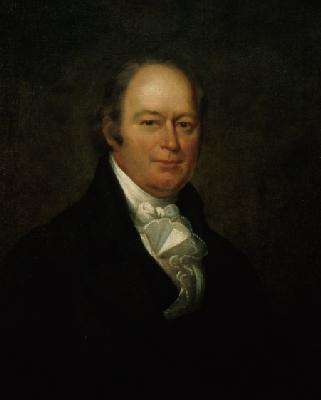The Volokh Conspiracy
Mostly law professors | Sometimes contrarian | Often libertarian | Always independent
Today in Supreme Court History: December 27, 1771
12/27/1771: Justice William Johnson's birthday.

Editor's Note: We invite comments and request that they be civil and on-topic. We do not moderate or assume any responsibility for comments, which are owned by the readers who post them. Comments do not represent the views of Reason.com or Reason Foundation. We reserve the right to delete any comment for any reason at any time. Comments may only be edited within 5 minutes of posting. Report abuses.
Please to post comments


Socialist Workers Party v. Attorney General of the United States, 419 U.S. 1314 (decided December 27, 1974): Marshall denies stay of Circuit Court order; as a result FBI agents are allowed to attend/monitor SWP’s national youth convention; Marshall notes that convention was open to the public, agents would not be disruptive, and if agents were excluded “the potential injury to the FBI’s continuing investigative efforts would be apparent” (unclear what they were investigating) (I wonder how this decision changed the tone of the convention, with everyone knowing FBI agents were present?)
P.S. Some of the “radicals” at my undergrad college flattered themselves by thinking the FBI was snooping around on campus. If that was really true, it would have been a waste of taxpayer dollars. We were no threat to anything, let alone national security. We were just a harmless, disorganized bunch of idiots. Half of us couldn’t even spell. My friend (we called him “Rasta John”) was absolutely convinced. Supposedly one could tell a wiretap by a “click” on the phone line. I would be casually talking to him on some mundane matter, and then I would tap my pen against the receiver. “Did you hear that??!” “No. Anyway . . . “ And then I tapped my pen again. He went stark raving nuts. With some people, it’s almost as if you’re being dared.
I think the important part of the decision is that it set a boundary for standing when pleading a chilling effect. In a prior case of the Army gathering public data, the Court found a lack of jurisdiction, but the greater specificity here kept it alive. I found it interesting that the nature of the entity (military v law enforcement) didn't factor into this, which strikes me as the correct answer.
Also of note that the circuit court kept in place an injunction preventing the FBI from transmitting the names of attendees to the Civil Service Commission. I don't think it was at issue before SCOTUS but it remained in place. I assume there was evidence that the FBI intended to do so, presumably for purposes of blacklisting, but I'm not going to look it up: I got Baldur's Gate III for Christmas and plan to inject it directly into my veins for the next week until work starts back up.
Ha . . . that's just what they want you to say . . .
The battle over the courts began in the 1790s and became red-hot after the election of 1800. Toss in a couple of impeachments.
President Jefferson hoped William Johnson would start a retrenchment in the Supreme Court. Johnson would challenge Jefferson's nemesis (and cousin), Chief Justice Marshall!
It was not to be. Johnson did speak his mind, becoming the "first dissenter" on the Supreme Court, but generally went along with the rest of the Marshall Court. At times, Johnson was more nationalist than other justices.
Johnson did write the majority opinion in U.S. v. Hudson, which opposed the concept of federal common law crimes. Ironically, the case involved a claim of seditious libel arising out of criticism of President Jefferson. Three Jeffersonians split over the issue -- the district court judge was for the libel, the circuit justice opposed it, and Johnson ultimately wrote the opinion against it.
Johnson wrote a biography of Nathaniel Greene and later traded letters with Jefferson, in which Johnson dropped some tea on the Court.
There were quite a number of justices appointed with the hope of "reining in" Marshall, and it failed every time.
Part of the problem was that Marshall was part of the "Virginia dynasty" (as was Jefferson). He was pro-slavery which in those days was more associated with Jeffersonian anti-federalists. How completely have the sides realigned since then, several times over!
You have to admit, Marshall was a very persuasive guy. And he had the best weed, to make some of his more creative stances seem more plausible.